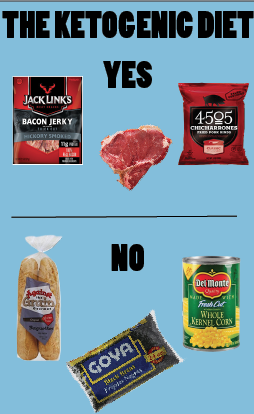Like many first-year students, I went into my first semester at Wake Forest absolutely terrified of gaining the “freshman fifteen.” I let that fear dictate what I ate and how I related to food and my body.
Looking back, I can now tell that my obsessive attempts to avoid weight gain were unhealthy, but in the moment, I got caught up in the whirlwind of mixed messages about food, dieting and body image that college students are exposed to on a daily basis. I wish I knew then what I know now — that there is a healthy, balanced way to eat and treat your body that doesn’t involve dieting, restriction, self-hatred and denial. This way of eating, called “intuitive eating,” has changed my life and allowed me to develop a healthier relationship with food, with my body and with myself.
Intuitive eating is based on a simple premise — if you listen to what your body is telling you, it will regulate itself. It sounds easy, but we get so caught up in ignoring our hunger and fullness cues that it becomes easy to distract ourselves from what our bodies are telling us. If we actually pay attention to those cues by eating when we are hungry and stopping when we are full, our body knows how to respond. Another important aspect of intuitive eating is that there are no “good” or “bad” foods, and all foods have nutritional value. When we moralize food, we learn to associate food intake with guilt. This problematic mindset is very common in people struggling with disordered eating. If we make a conscious effort to challenge the idea that foods are “good” or “bad,” and if we allow ourselves to eat what we crave in moderation while paying attention to hunger and fullness cues, we can create a healthier and more holistic relationship with food.
Here are some practical tips that I’ve found very helpful in implementing intuitive eating in my own life.
Ditch the scales. You are so much more than what the scale can tell you about yourself.
Remind yourself that the “freshman fifteen” is a myth, and that weight fluctuation is normal and healthy.
Remind yourself of your core values, the things that matter to you the most, and remember that focusing too much on weight and food distracts you from those values.
Remember that food is fuel and calories are units of energy. It sounds simple, but it’s something that we can easily forget in a culture that is obsessed with dieting.
Delete MyFitnessPal or related apps. At best, they distract, and at worst, they can become a source of obsession.
Stop dieting. It throws off your metabolism, your concentration, your mood and your energy levels. You can’t run on empty.
If your relationship with food, your body or dieting is controlling your life, consider reaching out to a therapist or dietician. Sometimes we need more help, and that’s okay.
















